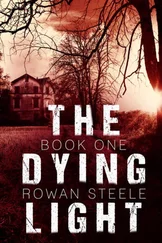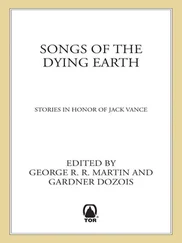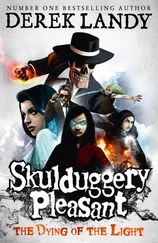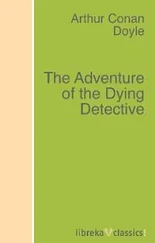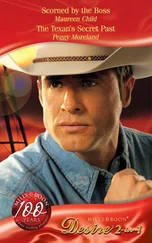Maureen JENNINGS - Except the Dying
Здесь есть возможность читать онлайн «Maureen JENNINGS - Except the Dying» весь текст электронной книги совершенно бесплатно (целиком полную версию без сокращений). В некоторых случаях можно слушать аудио, скачать через торрент в формате fb2 и присутствует краткое содержание. Город: Toronto, Год выпуска: 1997, ISBN: 1997, Издательство: McClelland & Stewart, Жанр: Полицейский детектив, на английском языке. Описание произведения, (предисловие) а так же отзывы посетителей доступны на портале библиотеки ЛибКат.
- Название:Except the Dying
- Автор:
- Издательство:McClelland & Stewart
- Жанр:
- Год:1997
- Город:Toronto
- ISBN:9780771043208
- Рейтинг книги:5 / 5. Голосов: 1
-
Избранное:Добавить в избранное
- Отзывы:
-
Ваша оценка:
- 100
- 1
- 2
- 3
- 4
- 5
Except the Dying: краткое содержание, описание и аннотация
Предлагаем к чтению аннотацию, описание, краткое содержание или предисловие (зависит от того, что написал сам автор книги «Except the Dying»). Если вы не нашли необходимую информацию о книге — напишите в комментариях, мы постараемся отыскать её.
Except the Dying — читать онлайн бесплатно полную книгу (весь текст) целиком
Ниже представлен текст книги, разбитый по страницам. Система сохранения места последней прочитанной страницы, позволяет с удобством читать онлайн бесплатно книгу «Except the Dying», без необходимости каждый раз заново искать на чём Вы остановились. Поставьте закладку, и сможете в любой момент перейти на страницу, на которой закончили чтение.
Интервал:
Закладка:
“What’s going on, Officer?” the man on the stool called out.
Murdoch recognized him. “Hello there, Tinney. You’re out early.”
“I didn’t want to miss anything, Sergeant. What’s happening? We heard some tart got a nubbing.”
“You heard wrong.”
“She’s dead, though, ain’t she?” interjected a scrawny red-nosed youth.
“Unfortunately she is that. So listen, all you folks. The police will need your cooperation. I’m going to give you a description of the girl and if you know her, know of her, or saw her anytime last night, speak right up. Is that clear?”
All eyes were on him, and a few of the crowd nodded eagerly.
“Is there a reward?” asked a short, round man who was protected against the weather by a long moth-eaten raccoon coat and fur cap with earflaps.
“Shame on you, Wiggins,” hissed one of his neighbours.
“Lay off, Driscoll. You’d shat your own mother if there was a dollar to be got.”
Mr. Driscoll scowled, but the crowd who heard the repartee laughed.
“Stop this at once,” roared Wicken. “You’re not at a music hall.”
Murdoch continued. “If there’s any reward it’s the one of knowing you might be saving some poor mother hours of heartache from wondering where her child is. Now listen. The girl is about fifteen or sixteen years old, dark hair, blue eyes. A bit over five feet. Same height as Wiggins. She has a small mole to the side of her nose. Anyone know her?”
There was a murmur and buzz but nobody answered him.
“Well? Poor girl died in your laneway, you must know her.”
Then Tinney offered, “There was a widow woman lived at the corner of Sackville and St. Luke’s a few months back. Could be her.”
At least four voices shouted him down.
“You’re leaky, John Tinney,” jeered his friend Driscoll. “That woman was on the downhill side of forty, for one thing, and she was as long as the copper, for another. Six foot if she was an inch. The sergeant says the poor girl was short.”
Tinney shrugged. “You never know.”
“When would she have passed on?” a woman asked Murdoch.
“Last night, probably between eleven and twelve o’clock.” He pointed to Crabtree. “This officer is going to write down all of your names and addresses and any information you can give him. Honest information, mind. No queer or you’ll find yourself with a charge. If you prefer a bit of privacy you can come to the station. You all know where that is, don’t you?”
There was a mixed response to that question. Some of them knew only too well.
He turned to Crabtree. “When you’ve done with this lot, stir up Cavendish, then trot over to the station just in case anybody’s come asking. Join me as soon as you can. I’m going to start knocking on doors.”
He went back down the laneway to where the body had been. Directly across from him was a row of six narrow, two-storey houses with sharp gables, each one leaning slightly towards its neighbour as if for comfort. All of the houses showed candles or lamps except for the end one, which was in darkness. Murdoch wondered if the inhabitants were sound sleepers. He decided to find out.
There was a ramshackle fence with more boards missing than standing. The gate had long gone and Murdoch stepped through the gap into the yard, taking careful notice of the tracks in the snow. From the back door, the snow was trampled down into a narrow path, unfortunately with so much overlay he couldn’t make out anything distinctly. Maybe that was the top of a needle-toed boot, maybe not. He straightened up and turned his back to the house. The place where the girl had died was easily visible.
Suddenly an angry voice shouted.
“Oi. What you doing? Get out of here.”
A woman was at the back door watching him. She was carrying a covered chamber pot that she was presumably about to empty into the outhouse.
“Detective Murdoch. I’d like to ask you some questions.”
The courteous address wasn’t really necessary, given the sort of woman she was. Her stained yellow wrapper was carelessly fastened and her unkempt hair straggled around a face that looked none too clean. She was young but her thin face was haggard.
“What sort of questions?” she said, not moving from the doorway.
“Tell you what, it’s cold as Mercury out here. Why don’t I come inside where we both would be more comfortable. And miss, if you can scrounge me up a mug of tea, I’d be right grateful.”
“I haven’t even lit the Gurney yet,” she said, yawning widely and showing discoloured and chipped teeth. “I just got up, matter of fact.”
“Lucky you. I’ve been up so long I’m ready for bed.”
“That’s not an invite, is it, Sergeant?”
Murdoch grinned, still willing to appease the woman, but he remained out of reach in case she decided to fling the contents of the pot in his direction. It wouldn’t be the first time.
“What do you want to know?” she asked as she emptied the chamber beside the door, turning the snow yellow.
“Like I said, we’d both be more comfortable inside.”
“Suit yourself.”
She stepped back and Murdoch followed her into the gloomy hallway. Two closed doors were to the right and at the far end was a curtained archway through which came the dim glow of a candle. The air was cold and stale.
The woman deposited the chamber pot in her room.
“We’re in here,” she said and led the way through the portieres into the kitchen. Here a second woman was bending over a large black range, fanning at a meagre fire that she had started in its belly. She was trying to get it to blaze but succeeding only in wafting clouds of smoke into the room. She turned around, coughing, when they came in.
“Bleeding hell, Ettie, will you see to this shicey stove. It won’t go.” She saw Murdoch. “Who’s he?”
“Copper. Wants to ask us some questions.”
“What about?”
“Don’t know, do I? Says he wants some tea.” She went over to the stove and peered at the fire. “Sod it, Alice, I told you to wait ’til it draws to put the coal on. You’ve smothered it.”
Murdoch stepped forward. “Let me. I’m good with fires.”
“That’s a surprise. I thought frogs were good for nothing.” Alice scowled. She too was in a day wrapper, this one a dingy green flannel. It gaped open at the neck, revealing her breasts, but she made no move towards modesty. She looked older than the young woman she had called Ettie by a good ten years.
There was a pair of tongs in a bucket beside the stove and Murdoch took them and removed the big lump of coal. Then he propped up the few bits of kindling and began to blow on the smouldering paper. A couple of good puffs and a bright flame appeared. When the wood began to crackle, he fished out some smaller pieces of coal from the bucket, put them on the fire and closed the stove door.
“Give it a few minutes,” he said, dusting off his hands.
The two women had been watching him silently.
“I suppose he deserves his chatter broth after that,” said Alice. She went to the sink and pumped water into a blackened pot. “It’ll take a while. Stove isn’t hot yet.”
“You’d better sit down before you knock out the roof,” said Ettie. The ceiling was low and Murdoch was six feet tall.
“Here.” She pulled forward a wooden chair. The back slats were almost all gone and Murdoch didn’t fancy the thing collapsing underneath him.
“I’ll stand,” he said, but he unbuttoned his coat and put his hat on the chair. Then he took his notebook and fountain pen from his inner pocket. The silver-nibbed pen had been Elizabeth’s Christmas present to him before she died, and it was his pride and joy. Both women took stock.
Читать дальшеИнтервал:
Закладка:
Похожие книги на «Except the Dying»
Представляем Вашему вниманию похожие книги на «Except the Dying» списком для выбора. Мы отобрали схожую по названию и смыслу литературу в надежде предоставить читателям больше вариантов отыскать новые, интересные, ещё непрочитанные произведения.
Обсуждение, отзывы о книге «Except the Dying» и просто собственные мнения читателей. Оставьте ваши комментарии, напишите, что Вы думаете о произведении, его смысле или главных героях. Укажите что конкретно понравилось, а что нет, и почему Вы так считаете.

